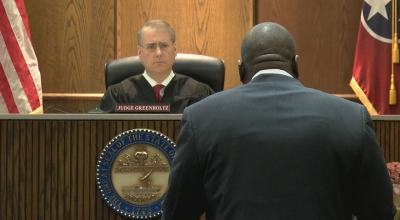


City council members vote tonight to prohibit the arrival of dockless scooter companies in Chattanooga that might alleviate the problems of cheap movement for the poor in an increasingly decentralized age.
Council members opted unanimously in a voice vote to ban dockless scooter providers such as Bird and Lime from providing their low-cost and smart-phone ignited scooters to people in the city.
By David Tulis / 92.7 NoogaRadio
The rent-by-the-minute electric two-wheelers are a boon to college students, downtown visitors, business people and others who desire a quick way to travel by personal whim at minimal cost. The scooters also promise to be a boon to people too poor to buy or maintain a car or too independent to be limited by CARTA bus routes.
The ordinance by Darrin Ledford and Ken Smith is full of harsh prohibitory language. “It is unlawful to provide or offer for use a dockless small vehicle anywhere within the city,” the two men chide. “It is unlawful to park, leave standing, leave lying, abandon, or otherwise place a dockless small vehicles in a public right-of-way or on public property” or to “operate” such a device “in a public right-of-way or on public property anywhere within the city.”
The ban is styled a moratorium to suggest light at the end of a tunnel. The ban last half a year.
In the meantime, angry words keep entrepreneurs in the self-propulsion field at the negotiating table. The city will fine anyone charged with a violation F$50 because the devices are “a traffic and pedestrian hazard and shall immediately be removed from right-of-way and impounded” subject to storage and other fees.
“I didn’t support the ban. It’s a moratorium until we can get the law right,” Councilwoman Carol Berz says. “Actually, it’s a moratorium for six months, and we are working with the scooter people.”
For all of its pretense about being the Gig City, the environmental city, the city of creatives (as Mayor Andy Berke calls it), municipal elected officials resist yet one more innovation allowed by the Internet, GPS systems and readily available payment options such as credit and debit cards.
Like unto the scooter ban, the city for well over a year has banned the use of the Internet for a whole swath of people living in the city limits.
These are people who want to use the Internet to obtain short-term vacation rentals for their homes and houses via Airbnb and other Internet platforms. The Airbnb ban is marred by constitutional defects. Its rental “overlay map” afflicts hundreds of local families under a prohibition without recourse and without adhering to the universal American ban on arbitrary and capricious laws.
No resident has defied the Airbnb regulation and sought to overturn it in court as an affront to fundamental private property rights.
Messrs. Ledford and Smith, out of concern for public health and safety, strike the innovative industry from existing here and serving its potentially vast clientele. They act as caretakers of a people who ride bikes but who are too childish and feckless to handle electric scooters.


